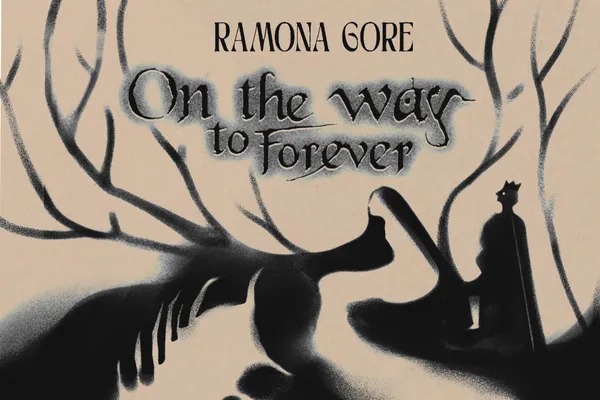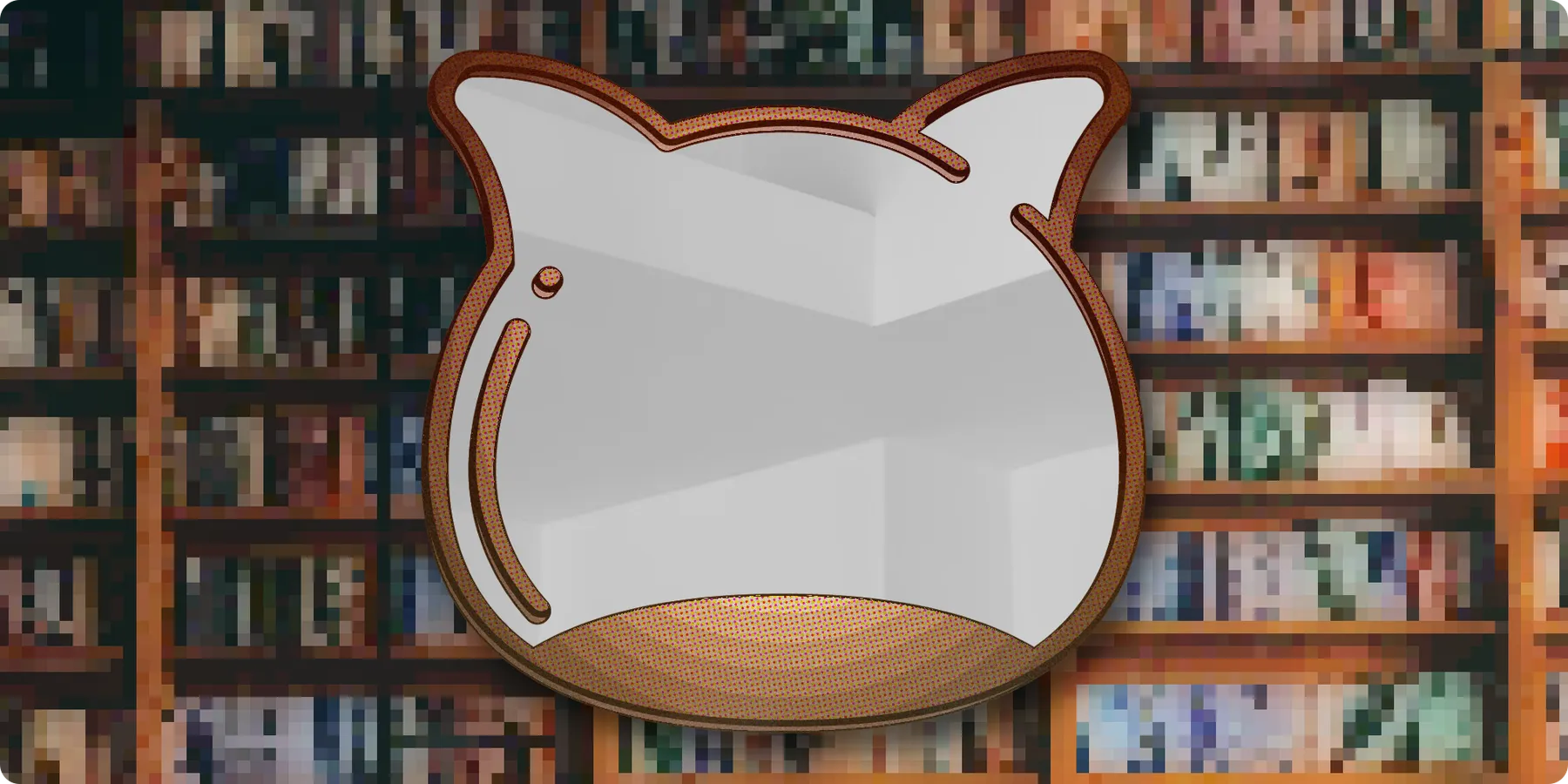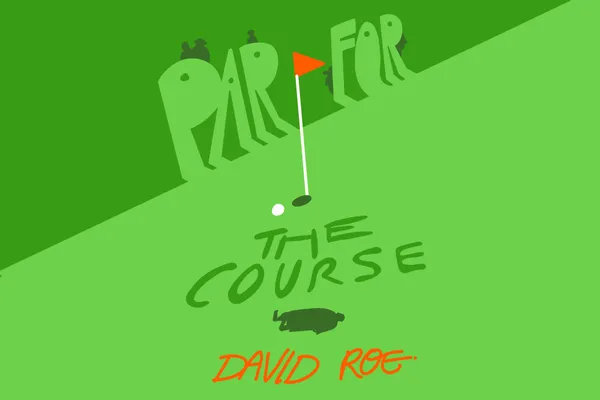
🪱 On the way to forever
by Ramona Gore
by Mark Keane

Take control with Horse Browser, the browser built for professionals who demand focus and efficiency. Save up to 2 hours every day by organising your work seamlessly and reducing daily stress.
Get 50% off your first payment with code FOOFARAW when you subscribe!

Tony France brought breakfast at nine o’clock. Not as lavish as the morning before—two slices of buttered toast, a Danish pastry, and a cup of tea. “Ready for the second coat?” he asked.
“I suppose so.”
He waited in the outer room. When I finished breakfast, he handed me the brush, the bristles stiff and the handle white with paint.
“Word of advice: use more paint on the second coat.” He took away the plate and cup. “Same arrangement as yesterday. Finish by five. Ivan or Hugh will bring you lunch.”
I took the bristle brush from my pocket. It was unusable—hard and unpliable. No matter; I felt calm and assured now that I had my technique. I used my key to saw off more bristles. In no rush, I sat on the first tub, breathed deeply, and pictured smooth white surfaces. I dipped the big brush into the paint, instinctively gauging the correct depth and load. In less than half an hour, I had painted the top half of one surface.
Onto the bottom half, no hesitation or uncertainty, in total command of the task. I reached the border and stopped for a short break to prepare myself for the next stage. I grasped the bristle brush—it felt natural, an extension of my hand. Angled strokes preceded horizontal strokes to complete the first side. I scraped the paint from the bottom of the tub for touch-ups. This time, I had no difficulty removing the plastic sheath and opening the second tub. I continued along the border, angled and horizontal brushstrokes, repetitive and relentless.
I didn’t hear Hugh enter the room. “You’re going great guns,” he said. He watched as I finished one more border section. I made no attempt to hide the bristle brush, leaving it lying on the lid. He nodded his head appreciatively. “You’ve really got the hang of it.”
He carried a smaller dish with no cover: a bowl of oxtail soup for starters, two sausages and one potato for the main course, a glass of soda water, but no dessert. I ate quickly. Hugh kept up a lively chatter, but I didn’t listen. I wanted him gone so I could get back to work.
He went into the small room and returned with the chamber pot. “I’ll empty this for you.”
I sipped the soda water and planned my strategy—finish the borders first, then return to the top.
Hugh returned, chamber pot held aloft. “You’re good to go.” He collected the dish and glass. “I’ll leave you to it. Remember to finish by five.”
With the final stages using the bristle brush complete, I returned to the mother brush. A fluent sequence of strokes, up and down, in an elegant flow—an elegance, too, in the precise incursions into corners and depressions. I kept at it, oblivious to the surroundings or the purpose of my task. It required my full attention—the physical act of painting was purpose enough.
I had just finished sealing the second tub when Ivan appeared. Seeing his snide expression, I slipped the bristle brush back into my pocket.
“No time to waste, Taffy. I’ve things to do.” He lifted the empty tub. “Have you finished with this?” He surveyed the structure and grimaced. “You better hope the third coat works. That doesn’t look like the color of any snow I’ve ever seen.”
He ushered me into my room and locked the door. I sat on the cot and brooded over what he said. There was no denying the surfaces looked streaky—the third coat would have to be decisive.
Hugh Peru unlocked the door the next morning. I was already up and pacing the available space.
“The day of the third coat; a most auspicious day.” Hugh held the door open and waved me through. “Breakfast is served.” He handed me a glass of water and a plate with a slice of bread. The brush lay on one of the remaining tubs, looking the worse for wear: bristles separated and handle thick with paint.
Hugh gestured to the wall. “It’s looking good. I feel cold just thinking about that Quebec snow.” I chewed the bread—hard at the edges—and drank the water. Hugh leaned against a bookshelf and checked his phone. I passed him the plate and empty glass. “Ivan will be here with lunch. Keep up the good work.” He gave me a thumbs-up. “Mr. Davidson is bound to be pleased.”
My eyes ached after a night of fitful sleep. The walls appeared streaked and murkier than I’d anticipated. I returned to my room to get the chair and sat facing the structure. A final concerted effort, I just had to ignore my weariness and the hollowness in my stomach. I repeated the words, Quebec snow, like a mantra, squeezed my hands, broken fingernails biting into the soft flesh, and willed myself to proceed.
Seven hours left—precious time. Urgency fizzed in my veins as I pried open the lid and entered the snowstorm, up and down the chair, paint from brush to wall. Paint and snow. Back and forth, more and more paint—every depression and edge, ridge and dimple, under thick, fluffy Quebec snow.
I cut off the optimum number of bristles and began along the border. Bristle brush at an angle and then horizontal, moving higher, encroaching the upper third coat. Then the mother brush to smooth the overlap and achieve the required snowy, brilliant white. One surface finished, then onto the next, and into the third tub. I bent down, legs straddling the tub, bristle brush into the paint and onto the wall, back to the mother brush, tub, and wall.
A quarter of the way across, my rumbling stomach caused me to hesitate, and I missed the switch of brushes, using the mother brush on the border. A splodge of paint stuck to the wood, glaringly white. I shuffled backwards, shocked and outraged. After two days, and more than four gallons of paint—how could this happen? Walking in circles, I groaned and cursed the brush. I wanted to lie down and sleep. No way. No giving up; not when I’d come this far. Giving up was not an option.
I tore a strip from my shirt to sponge the misapplied paint, spreading and smudging the stain. I spat on the cloth, rubbed and rubbed until the paint vanished. No evidence of the mistake remained, not to my eyes at least. But would Mr. Davidson know? I pressed on, slower now, ultra-careful. I could allow one mistake, but no more than one.
Ivan carried in a tray with another slice of bread and glass of water. He gave me one of his derisive grins. “So, Taffy, what’ve you been up to?”
I said nothing. His grin broadened as though he read my mind.
“Any slip-ups? If you ask me, the whole thing looks botched. Mr. Davidson isn’t going to accept this. Snowy landscape? More like badly mixed concrete.” He nudged the tray with the toe of his shoe. “Have your bread and water so I can get going.”
I chewed the stale bread, keeping my eyes away from the spot where I splodged paint. Ivan scanned the books on the shelves and hummed something that sounded like a nursery rhyme. I considered asking him what he honestly thought of the painting, but decided against it.
He took the plate and glass. “Finish everything by five. Good luck, Taffy. You’re going to need it.”
I returned to the border, on my knees, hypersensitive and vigilant. All that mattered was the brushstroke, then the next, bristle brush and mother brush. I completed the border—no visible overlap, a continuum of white. One more check on the area where I’d slipped up, but I couldn’t see anything other than wood grain. How could Mr. Davidson tell? His eyesight was no better than mine. He would never know, and I had no intention of telling him.
Entering the home stretch, I painted with renewed vigor. The third tub was severely depleted but enough remained to finish the job. I applied the paint thickly. It went on like a dream, the whiteness lighting the room. I scrutinized the surfaces, searching for paler areas, my tired eyes straining to find blemishes. Absorbed in this search, I didn’t notice Tony France until he stood beside me.
“Job done,” he said.
I secured the lid on the tub, pressing down so it snapped shut. As I handed over the brush, I experienced a surge of sadness—nothing left to do. “Do you think Mr. Davidson will like it?”
Tony took a step back, as if recoiling from my question. “That’s not for me to say. All I can say is you’ve done a better job than Joe Spain.”
Emboldened, I asked, “What exactly did Joe Spain do wrong?”
Tony took his time before answering. “It was more his poor attitude. He didn’t show the work enough respect. Can’t say that about you.”
I went into my room. Tony stood in the doorway.
“I’ll be here in the morning with Mr. Davidson for the verdict,” he said.
When he left, I sat on the cot, got up, stood in the darkness, and then sat down again. Sleep seemed unimportant as I vacillated between hope and disquiet. I pictured whiteness emanating from the surfaces in the other room. Then I recalled Mr. Davidson’s reference to grave consequences, and Tony saying that Joe Spain wouldn’t be painting anything for some time. And, of course, there were those special lights Mr. Davidson would use to check for mistakes.
The sound of a key in the lock woke me. Tony opened the door. “Mr. Davidson will be joining us shortly. Come on out and wait.” We stood by the painted structure. I stared at the ground, afraid to look up and see the area where I’d splodged paint or the inadequacy of the whiteness.
Mr. Davidson arrived, dapper as ever. His eyes widened when he saw me, and I realized how I must appear—exhausted, three days beard growth, and gaunt from hunger. And my clothes, torn and covered in paint, thick smears on my sleeves and across my trousers.
He stood with his hands on his hips and rocked back and forth. “Well, Oscar. I can call you Oscar, can’t I?”
“Yes,” I replied.
“Oscar Wales is quite a mouthful.” He smiled, the merest uplift of his lips. “Well, Oscar, you’ve been busy.”
I waited for his verdict, but Mr. Davidson appeared to be in no hurry. He wasn’t even looking at the structure. Where were the special lights? Was the painting good enough? Did it remind him of the snow that fell in Quebec in January 1981?
“Well, Oscar.” He turned towards the concertina surfaces, his face impassive.
I looked. The structure appeared white, brilliant white, but was it what he wanted? The leadenness in my stomach told me it wasn’t. He walked towards the door, and Tony indicated that I should follow him.
“Oscar, I have an interesting project for you.” Mr. Davidson paused and coughed to clear his throat. “It relates to a visit I made in 1987 to a small village in the Urals. An area surrounded by forest, magnificent old oaks. Late September, the color of the leaves was quite magnificent. Something I’ll never forget.” He looked over his shoulder. “Tony, please take us to the other room.”
With Tony in front, I accompanied Mr. Davidson down a long hallway with thick-piled wool carpeting. Relieved and excited, I could barely take in his words.
“You will be provided with six gallons of paint. The effect I want you to capture is the color and texture of those leaves I witnessed in that village in the Urals in September 1987. Three coats of paint will be required.”
Tony stopped at a door and took a set of keys from his pocket. My neck tingled. I flexed my fingers and slowed my breathing, joyful and anxious. Another challenge.


